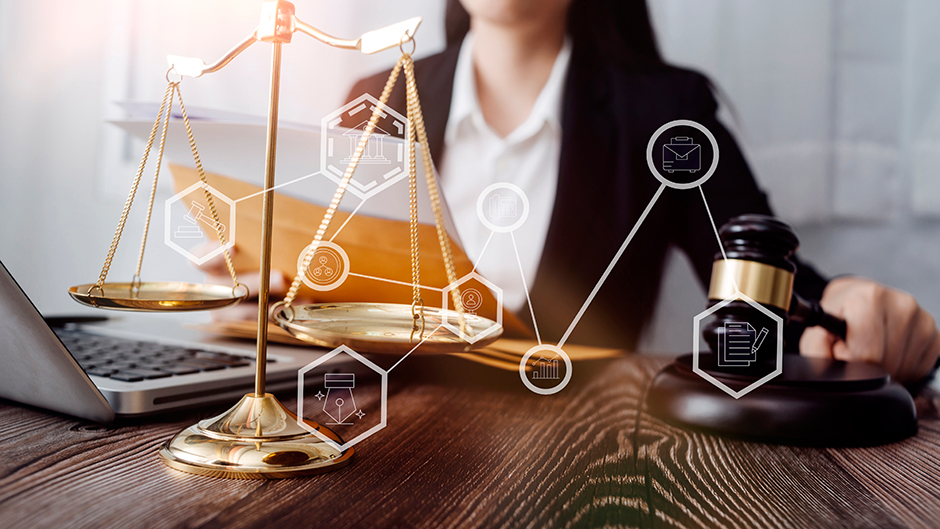Last Thursday, Miami Law's Technology Law Club and Intellectual Property Law Society moderated a discussion titled "Are We Ready for the Metaverse?" This hour of dialogue focused on digital assets related to the blockchain, asking whether the world was equipped for this new digital age.
Diana Milton, a 3L and Technology Law Club president, introduced the distinguished panel of speakers: Daniel Barsky, Veronica Reynolds, Vandana Taxali, and Justin Wales. Allan Lemos, a 2L and vice president of the Technology Law Club, moderated the discussion.
Barsky is an adjunct professor at Miami Law, teaching intellectual property law, and is co-director of Miami Law's Startup Clinic. He is also a partner at Holland & Knight, representing and advising his clients on transactions involving intellectual property, private equity, and data assets.
Reynolds is an associate at BakerHostetler. Her practice focuses on emerging issues related to new technologies, such as blockchain, cryptocurrencies, NFTs, and data privacy. She received her J.D. from the University of California, Los Angeles, where she founded the Law and Blockchain Society.
Taxali specializes in art, intellectual property, and technology/blockchain law. She is the founder and CEO of Artcryption, an art, technology, and legal startup that licenses and manages art assets and intellectual property using the blockchain.
Wales is a Miami Law alumnus. He graduated summa cum laude from Miami in 2012 and is now the head of legal for North America at Crypto.com. He leads and helps oversee the company's legal and regulatory strategy in North America.
The panel discussed myriad topics relating to the blockchain, cryptocurrency, and the Metaverse. Barsky highlighted the unknowns that could come with potential federal regulation. Meanwhile, Reynolds, Taxali, and Wales each saw different ways to utilize these technologies.
Reynolds is interested in the blockchain's ability to encourage innovation and protect consumers and markets. Taxali discussed the potential of using the blockchain as an alternative copyright mechanism. Having initially attended law school with interest in First Amendment constitutional litigation, Wales said he saw potential in the blockchain's resistance to censorship.
Every panelist agreed on the importance for aspiring lawyers interested in blockchain technologies to get involved with and gain firsthand experiences. Reynolds stressed the importance of owning up to one's legal and personal niche interests, no matter how bizarre they seem.
Miami Law's Technology Law Club seeks to increase awareness of the legal issues technology companies face and the technical issues impacting our communities through discussions with experts. A recording of the event is here.
Read more about Miami Law's Business of Innovation, Law, and Technology concentration

